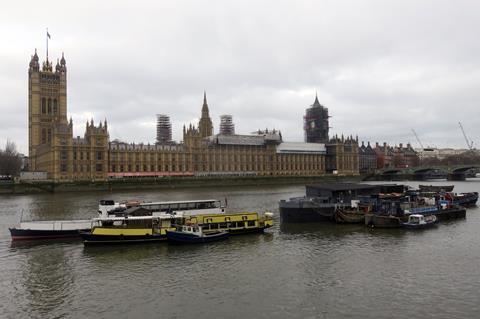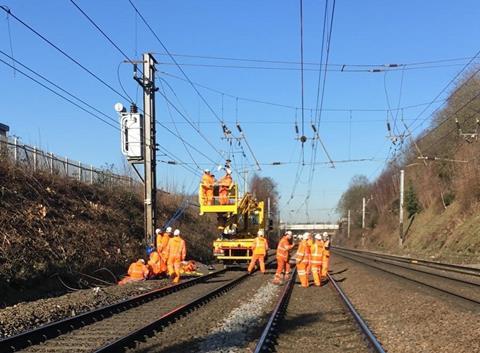
UK: The Department for Transport faces ‘an extremely challenging and uncertain environment’ in which to implement the proposed Williams-Shapps rail reforms, but ‘has neither the necessary urgency nor appreciates the scale of the challenge ahead’ the House of Commons Public Accounts Committee warns in its Overview of the English Rail System report published on July 7.
The Committee says the rail system in England has ‘suffered from a lack of strategic direction and accountability for many years’. As a result, the railway has ‘struggled to improve service reliability, quality and flexibility’, with services not sufficiently focused on the needs of passengers.
Its main conclusions and recommendations are:
- DfT lacks a convincing and timely plan for encouraging passengers back to rail as part of Covid-19 recovery, and risks an increase in car use. DfT should write to the Committee by December setting out the actions it is taking to encourage passengers back, which should include a plan for fare reform and flexible ticketing; steps to integrate public transport; and report how Network Rail is actively managing services to respond to emerging demand patterns;
- the Committee says it has identified serious failings in the rail system in recent years, and DfT must overcome significant long-standing issues to bring about complex reform. It recommends that DfT should set out clear roles and responsibilities for the delivery of reform, and a timetable for implementation;
- published information from DfT and the Office of Rail & Road on whole-system costs and revenues is not sufficient to inform proper oversight of the rail system, given the extent of taxpayer exposure. DfT should set out plans to improve transparency, including the regular publication of ‘whole-system’ financial data, which should be further developed to enable meaningful oversight, with regular reporting to parliament on the progress and implementation of the white paper;
- it is not yet clear that the interim National Rail Contracts with train operators fairly distribute the risks between government and operators, or provide incentives for operators to deliver efficient, high-quality, and value-for-money services. DfT should set out the high-level terms of the contracts, explain where revenue and cost risk will lie, and show how it is using these to incentivise improved performance beyond the planned performance-based management fees;
- the Committee says it is ‘disappointed’ at the lack of progress in agreeing a specific and funded plan for the electrification required to achieve the government’s own net zero targets. DfT should set out how it will work with others to deliver electrification, and how it plans to fund a stable programme of investment;
- it is not clear to the Committee how Network Rail expects to achieve the remaining efficiencies planned in Control Period 6. Network Rail should set out how exactly it intends to achieve the anticipated £3bn of savings, and how the process will be governed, monitored and incentivised.
‘Rail reform won’t work if it doesn’t work for taxpayers and fare-paying passengers, and the government won’t achieve its economic and environmental goals without effective rail reform’, said Committee Chair Dame Meg Hillier. ‘There is everything to play for in delivering a rail system that delivers for passengers and encourages greener travel. But there are still many moving parts and a huge challenge to balance costs. The government needs to show it can act with urgency.’
Responses
Responding to the report, a DfT spokesperson said ‘our Plan for Rail sets out the biggest reforms to our railways in a generation, focused on the passenger, ending a fragmented, unsustainable system and delivering clear national leadership under a single body, Great British Railways.
‘The unprecedented taxpayer support for rail kept services running, moving vital freight and medical supplies, transporting key workers, and protecting thousands of frontline jobs. This support came with rigorous scrutiny to protect taxpayers’ interests.
‘Our proposals will ensure greater value for money for taxpayers and a better deal for passengers — with affordable fares and the punctual, reliable services they deserve as people return to the railways.’

Darren Caplan, Chief Executive of the Railway Industry Association, said ‘it is positive to see the Public Accounts Committee making the case for a consistent programme of electrification work. Alongside battery and hydrogen train fleet orders, electrification is essential if we are to meet the government’s net zero decarbonisation goals. As the Committee highlights, delivering a rolling programme of work, without the boom and bust investment profiles we’ve seen in the past, is a cost-effective way to electrify the UK’s intensively used rail lines.’
TSSA General Secretary Manuel Cortes said the report ‘must be a wake-up call for the government — they are being told a series of home truths which can’t be ignored as we begin to move out of the shadow of the pandemic. The MPs on the Public Accounts Committee understand that we need our railways to be front and centre of the recovery from Covid and that only by getting people back onto the network can the wider economy function.’
‘Behind its measured language, what this report shows is that ministers have got all their priorities wrong’, added RMT General Secretary Mick Lynch. ‘Their response to the plight of rail is clouded by a dogmatic fixation with designing a system which can bolt the failed private train operators back into place instead of setting a clear strategy for rail to play its part in delivering a long term safe and sustainable massive increase public transport use to help meet the climate change challenge.
‘Every single failing detailed by the Public Accounts Committee, without exception, could begin to be tackled if we took back real control and created an integrated, publicly owned and publicly accountable railway where time, resources, and every penny of tax and fare payer is spent on improving services. We need a rail rethink which puts rail and public transport generally at the heart of a green transport revolution that will reduce emissions and pollution.’



